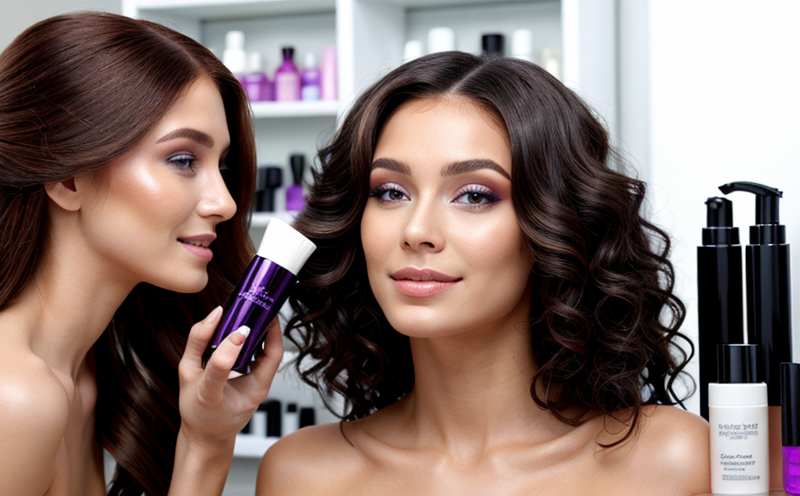Sensory Panel Testing of Hair Care Products
The sensory panel testing of hair care products is a crucial step in the quality assurance and product development processes. This method involves evaluating samples through the senses—tactile, visual, olfactory, and gustatory—to ensure that the final formulation meets consumer expectations regarding texture, appearance, scent, flavor, and taste.
For hair care products, this process typically includes a series of evaluations aimed at assessing the product's lathering properties, foam quality, spreadability, and overall aesthetic appeal. The sensory panel also assesses the product’s odor, color, and consistency, ensuring that it aligns with the brand's identity or consumer preferences.
The test subjects are usually trained panelists who possess extensive knowledge about hair care products and their attributes. These professionals provide detailed feedback on aspects such as the product's texture, scent, and how well it works post-application. This data is invaluable for fine-tuning formulations to meet market demands while maintaining product integrity.
Eurolab’s sensory panel testing aligns closely with international standards like ISO 26519:2013, which provides guidance on the establishment of sensory panels and their activities in cosmetic products. Our team ensures that all evaluations are conducted under controlled conditions to minimize variability and ensure accurate results.
Our comprehensive approach includes not just panel testing but also an array of instrumental analyses complemented by expert interpretation. This combination allows us to provide a holistic view of the product, ensuring it meets both sensory expectations and regulatory requirements.
Applied Standards
The sensory panel testing for hair care products is governed by several international standards that ensure consistency and accuracy in evaluation. These include:
- ISO 26519:2013 — Establishing sensory panels for cosmetics.
- ASTM F2426-19 — Sensory evaluation of personal care products.
The standards guide the establishment and operation of sensory panels, ensuring that all evaluations are conducted under controlled conditions to minimize variability. Compliance with these standards guarantees high-quality results that can be trusted by clients worldwide.
Eurolab Advantages
At Eurolab, we pride ourselves on providing top-tier sensory panel testing services for hair care products. Our advantages include:
- Expertise in Cosmetics Testing: Our team comprises highly trained and experienced professionals who understand the nuances of hair care formulation.
- Comprehensive Testing Capabilities: We offer a full suite of testing services, including instrumental analysis and expert interpretation to complement sensory evaluations.
- State-of-the-Art Facilities: Our laboratories are equipped with advanced equipment that ensures precision in all our analyses.
- Regulatory Compliance: Ensuring that all tests comply with international standards such as ISO 26519:2013 and ASTM F2426-19.
This combination of expertise, technology, and compliance sets Eurolab apart in the field of sensory panel testing for hair care products.
Use Cases and Application Examples
| Use Case | Description |
|---|---|
| Evaluation of New Formulations | Determining the sensory acceptability of new hair care product formulations before launch. |
| Product Line Extension | Assessing how a new formulation fits within an existing product line to ensure consistency in texture, scent, and appearance. |
| Detection of Defects | Identifying any defects or inconsistencies that arise during the manufacturing process through sensory evaluation. |
| Compliance Verification | Ensuring product compliance with sensory expectations as defined by international standards like ISO 26519:2013 and ASTM F2426-19. |
| Customer Feedback Analysis | Analyzing customer feedback to refine formulations based on sensory attributes. |
- Evaluation of New Formulations: This involves assessing the new formulation's acceptability in terms of texture, scent, and overall appearance before it hits the market.
- Product Line Extension: Ensuring that any new products align seamlessly with existing offerings to maintain brand consistency.
- Detection of Defects: Identifying issues during production by sensory evaluation helps in quality control and process improvements.
- Compliance Verification: Ensures that the product meets all sensory expectations as defined by international standards, thereby facilitating easier market access.
- Customer Feedback Analysis: By analyzing customer feedback through sensory evaluations, companies can fine-tune their formulations to better meet consumer preferences.





